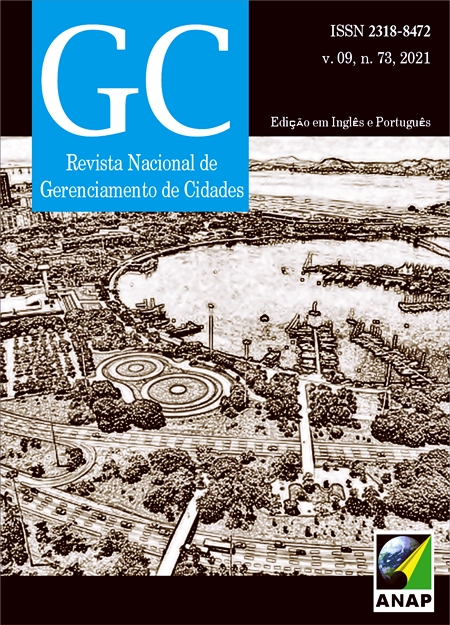Experiences on the application of the Sustainable Urban Mobility Index (IMUS) in Brazilian and foreign cities
DOI:
https://doi.org/10.17271/2318847297320213008Palavras-chave:
Sustainable Urban Mobility. Sustainable Urban Mobility Indicators. Sustainable Urban Mobility Index (IMUS).Resumo
The lack of effective instruments to control and monitor urban mobility has had a direct impact on the management of municipalities. The Sustainable Urban Mobility Index (IMUS, in Portugese) is an instrument that aims to support urban mobility planning, based on a list of indicators that allow the assessment of different aspects of sustainable urban mobility. However, some indicators are still not easily accessible in the municipalities, either due to the lack of data or the absence of information made available in an aggregated form, a numerical value for example. Given this context, this article presents a comparative analysis of studies that applied the IMUS in different cities in Brazil and abroad, in order to identify which indicators of urban mobility are still difficult to access in the municipalities where the IMUS was applied. Theses and dissertations or other academic works that used the IMUS, developed between 2008 and 2019, with the theme adhering to the title “Index of Sustainable Urban Mobility (IMUS)” were selected. The analysis of the works allowed to identify: (i) which indicators are still difficult to access to assess urban mobility, by municipality size, and (ii) a comparative analysis of the index result for the Domains, Themes and Indicators, in the evaluated cities.















